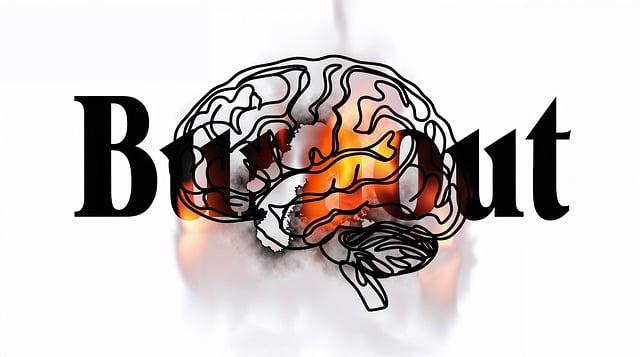Mood regulation is vital for young adults facing cancer, as it helps them cope with emotional challenges. Strategies like social skills training, cognitive-behavioral therapy (CBT), mindfulness practices, and support groups enhance emotional well-being, improve quality of life, and foster resilience. CBT targets interconnected thoughts, feelings, and behaviors to alleviate anxiety and depression. Mindfulness techniques such as meditation and breathing exercises reduce stress and improve mental wellness. Support groups offer a community of understanding and shared experiences, while public awareness campaigns promote open dialogue about emotional regulation. Creative outlets like art, music, dance, and writing provide alternative therapies for processing emotions and cultivating mental wellness.
Mood regulation strategies are crucial for young adults facing cancer, enabling them to navigate emotional challenges alongside their medical journeys. This article explores various therapeutic approaches designed to empower individuals with cancer. From cognitive-behavioral therapy (CBT) for managing emotions to mindfulness practices fostering presence and balance, each section delves into effective techniques. We also examine the benefits of support groups, creative outlets, and alternative therapies, providing comprehensive insights into enhancing emotional well-being for young adults dealing with cancer issues.
- Understanding Mood Regulation and its Significance for Young Adults with Cancer
- Cognitive-Behavioral Therapy (CBT): A Powerful Tool for Managing Emotions
- Mindfulness Practices: Cultivating Presence and Emotional Balance
- Support Groups and Peer Connection: Building a Community of Understanding
- Creative Outlets and Alternative Therapies: Expressing Yourself Beyond Words
Understanding Mood Regulation and its Significance for Young Adults with Cancer

Understanding Mood Regulation is paramount for Young Adults facing Cancer. This period often involves a whirlwind of emotions—from anxiety and fear to loneliness and sadness. Effective mood regulation strategies can significantly enhance their emotional well-being promotion techniques, offering a much-needed respite amidst the challenges of their diagnosis and treatment. By learning to manage these feelings, young adults with cancer can foster resilience, improve their quality of life, and navigate this journey with greater ease.
Social Skills Training and Confidence Boosting are integral components in this process. Building a support network and cultivating positive coping mechanisms through therapy for young adults with cancer issues can help them feel less isolated. Moreover, these strategies empower individuals to express themselves openly, seek needed assistance, and maintain a sense of control over their lives—all vital aspects in supporting their overall emotional health during and after cancer treatment.
Cognitive-Behavioral Therapy (CBT): A Powerful Tool for Managing Emotions

Cognitive-Behavioral Therapy (CBT) stands as a highly effective tool for young adults grappling with emotional challenges, especially those navigating cancer issues. This form of therapy is grounded in the understanding that our thoughts, feelings, and behaviors are interconnected, and by modifying negative thought patterns, individuals can gain better control over their emotions and overall well-being. CBT helps patients identify distorted thinking and replace it with more realistic, positive alternatives, thereby reducing anxiety, depression, and other emotional distress commonly associated with cancer diagnosis and treatment.
For mental health professionals, integrating CBT into risk management planning is invaluable. By teaching patients coping strategies and promoting emotional well-being through techniques like relaxation exercises and problem-solving skills, therapists can empower young adults to actively manage their mental health. Furthermore, designing mental health education programs that incorporate CBT principles can help foster resilience and enhance the overall effectiveness of support services for this vulnerable population.
Mindfulness Practices: Cultivating Presence and Emotional Balance

Mindfulness practices have emerged as a powerful tool for young adults navigating cancer issues and their subsequent therapy. By cultivating presence and emotional balance, individuals can effectively regulate their moods and cope with stress reduction methods that are often integral to their treatment journey. This involves focusing on the present moment, observing thoughts and emotions without judgment, and developing a deeper understanding of one’s inner state.
Incorporating mindfulness into daily routines can be as simple as dedicating a few minutes for meditation or engaging in mindful breathing exercises. These practices not only help in managing anxiety but also foster mental wellness, which is crucial for overall well-being. The benefits extend beyond therapy sessions; they can enhance the effectiveness of Community Outreach Program Implementations and even inspire the creation of Mental Wellness Podcast Series Productions, offering support networks and resources to those facing similar challenges.
Support Groups and Peer Connection: Building a Community of Understanding

Support groups offer a unique and powerful resource for young adults facing cancer issues by fostering a community of understanding and shared experiences. These groups provide a safe space where individuals can connect with peers who have gone through similar challenges, creating a network of support that extends beyond traditional therapy for young adults. The sense of belonging and camaraderie within these communities is invaluable in the journey towards emotional regulation.
In light of the impact of cancer on mental health, public awareness campaigns and well-designed Mental Health Education Programs can play a crucial role in promoting understanding and reducing stigma. These initiatives contribute to a broader conversation about emotional regulation, encouraging open dialogue and fostering an environment where young adults feel comfortable seeking help. Support groups, therefore, become integral to the development of comprehensive strategies for managing cancer-related stress and enhancing overall well-being.
Creative Outlets and Alternative Therapies: Expressing Yourself Beyond Words

Expressing oneself through creative outlets and alternative therapies can be a powerful tool for young adults navigating cancer issues. Art, music, dance, and writing provide unique channels for processing emotions that words alone might struggle to convey. Engaging in these activities allows individuals to tap into their subconscious, offering a form of therapy that complements traditional treatments. For instance, painting or drawing can help visualize and externalize internal struggles, while composing music or poetry provides an avenue for emotional release and self-reflection.
These creative practices foster mental wellness by encouraging introspection and cultivating compassion both within oneself and towards others facing similar challenges. Public awareness campaigns and mental wellness podcast series production have played a significant role in promoting these alternative therapies as valid means of support. Moreover, compassion cultivation practices, often incorporated into these therapeutic forms, can enhance emotional resilience and overall well-being, contributing to a holistic approach to cancer care that addresses not just physical health but also the profound impact on one’s mind and spirit.
Mood regulation strategies, particularly cognitive-behavioral therapy (CBT), mindfulness practices, support groups, and creative outlets, offer young adults with cancer powerful tools to navigate their emotional journeys. These approaches not only enhance coping mechanisms but also foster resilience in the face of challenging cancer issues. By integrating these therapies into their care plans, healthcare professionals can significantly improve the mental well-being and overall quality of life for this vulnerable population.














